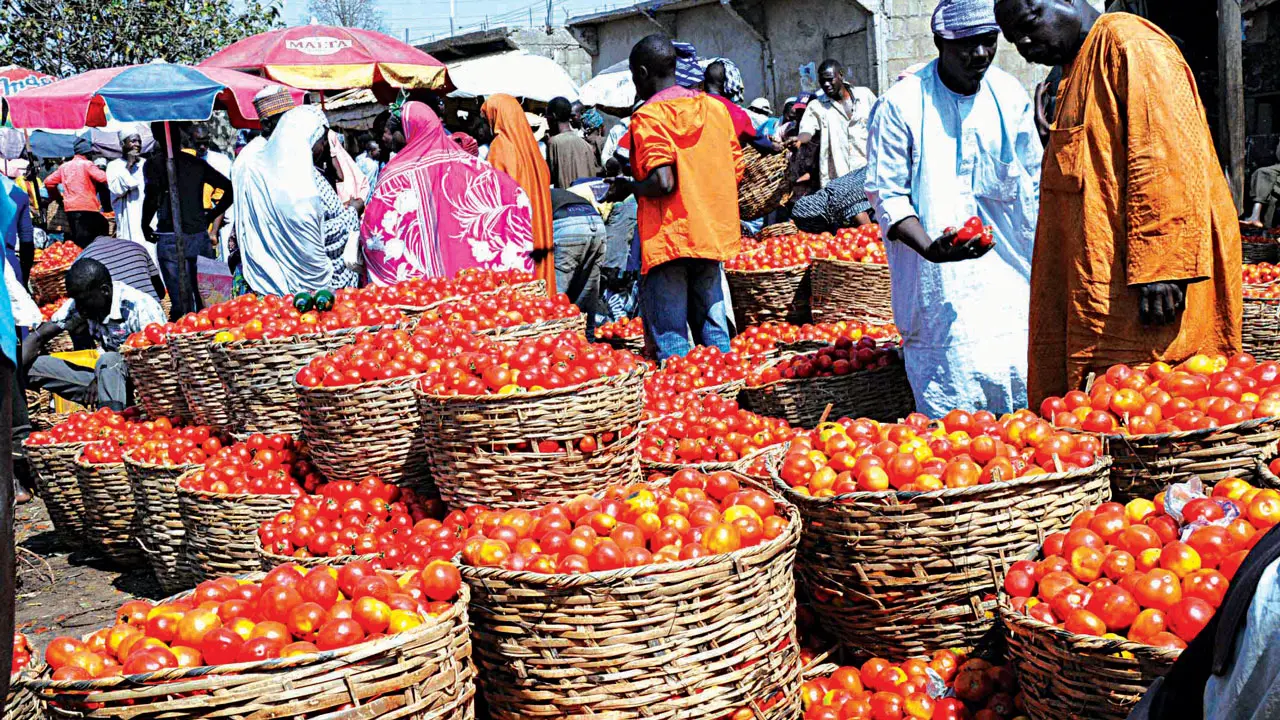Nigeria is grappling with a severe cost-of-living crisis as inflation reaches near-unprecedented levels. Core inflation soared to 34.19% in March 2024, while food inflation hit 40%, marking the highest rates in the country’s post-1999 democratic history.
These figures suggest that Nigeria is edging closer to its all-time high inflation rate of 47.6% recorded in January 1996, having already surpassed March 1996’s 31.7%.
Aaron O’Neill of Statista highlighted in a recent note that Nigeria’s inflation has consistently exceeded the African average for over a decade, and a significant decrease is unlikely in the near future.
The International Monetary Fund’s (IMF) forecast of an average annual inflation rate of 22.96% for 2024 now appears overly optimistic, given the current trajectory.
One of the most alarming aspects of Nigeria’s inflation is its volatility. Food inflation, for instance, has not been this high since August 2005.
Between January 2023 and January 2024, plantain prices surged by 129%, rice by 98%, onions by 97%, bread by 71%, and beans by 64%, according to the National Bureau of Statistics.
READ ALSO: Food inflation has declined massively – Bayo Onanuga
Such erratic inflation is typically indicative of an economy in distress, leading to fluctuating prices, increased unemployment, and deepening poverty.
Despite these challenges, Nigeria’s economy, which is characterized by significant state involvement, still generates more than half of its GDP from the services sector, particularly telecommunications and finance—a trait more common in advanced economies.
However, the private sector is under significant strain. Reports indicate that Nigerian Breweries, part-owned by Heineken, has raised prices three times this year due to the economic distress.
Even the most affordable products, such as the popular Goldberg lager, have become too expensive for many consumers. This economic strain has led several companies, including Procter & Gamble and GSK, to either cease local manufacturing or rely on third-party distributors.
The telecommunications sector, however, has seen minimal price adjustments despite these economic pressures.
The industry, which accounts for 14% of Nigeria’s GDP and boasts 221.7 million active voice subscriptions and 160.2 million data subscriptions, remains a critical component of the nation’s economy. The sector’s health is vital not just for corporate profits but also for national progress.
Yet, the industry is facing significant challenges, including regulatory restrictions that prevent tariff adjustments. While other sectors have adapted to economic fluctuations by revising prices, telecom operators are constrained, affecting their ability to respond to market changes.
Infrastructure issues, such as frequent fibre optic cable cuts and multiple taxation, further compound the industry’s problems.
READ ALSO: MPC reconvenes amidst persistent high borrowing costs, rising inflation
Despite efforts by the Nigerian Communications Commission (NCC) and the Ministry of Communication, Innovation & Digital Economy, these issues persist, hindering the sector’s growth.
The public perception of poor Quality of Service (QoS) remains a significant concern. Although economic hardship has driven up the cost of most consumer goods and services, telecommunication services have remained stagnant due to NCC’s price regulations.
This situation is untenable as the sector heavily relies on foreign exchange for critical equipment, with the depreciation of the Naira inflating operational costs and squeezing profit margins.
Nigeria’s approach to tariff setting in the telecommunications sector, rooted in the early 2000s, aimed to protect consumers and promote fair competition. However, the market has matured, and the economic environment has changed drastically since then.
The current tariff structure, rather than benefiting consumers, now hampers operators.
A call for a tariff revision is necessary to ensure the industry’s survival and to continue driving economic growth. This revision would enable network infrastructure upgrades, directly benefiting consumers and sustaining the industry’s resilience.
As Dr. Aminu Maida, the NCC’s Executive Vice-Chairman, emphasized, customers deserve the best possible service, and operators are committed to delivering it.
However, a sustainable and well-regulated telecoms sector, which is crucial for national progress, requires rethinking the pricing model to reflect the economic realities facing the sector.

 Entertainment1 week ago
Entertainment1 week ago
 Entertainment4 days ago
Entertainment4 days ago
 Comments and Issues7 days ago
Comments and Issues7 days ago
 Comments and Issues7 days ago
Comments and Issues7 days ago
 Business1 week ago
Business1 week ago
 Health6 days ago
Health6 days ago
 Comments and Issues7 days ago
Comments and Issues7 days ago
 Football6 days ago
Football6 days ago

